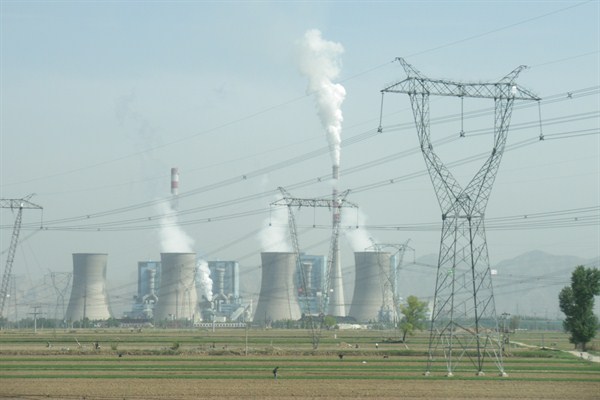The rapid economic growth of the People's Republic of China has fueled a demand for energy that has now outstripped domestic sources of supply. As a result, China can no longer sustain its economic expansion without importing massive quantities of energy. To compensate for the projected underproduction of domestic energy sources as well as further increases in anticipated energy consumption, the Chinese government has pursued a subtle energy security strategy that includes three major components: first, reforming the domestic energy sector to maximize production and attract foreign direct investment; second, expanding China's energy mix to reduce the nation's dependency on fossil fuels and contain pollution; and third, diversifying sources of foreign energy to limit dependence on any single country or region.
Beijing's ambitious "energy diplomacy," which has kept Chinese diplomats engaged throughout the globe, has thus far proven successful in achieving these three pillars. But in the process, the PRC has caused alarm among other countries, who worry that Beijing's vision of a zero-sum world energy game could threaten their own energy security. And for a PRC government that has always sought to limit its dependence on foreigners, the country's growing reliance on external energy sources presents a major economic, political and diplomatic challenge.
As in other areas, the central government in Beijing has also had difficulty in recent years in controlling the large number of newly independent actors in China's energy sector, ranging from energy companies to military and intelligence agencies. This is especially true when their operations extend to China's provinces or to foreign countries. As a result, past bureaucratic restructuring has failed to assure the development and implementation of an integrated national energy policy under Beijing's direction.

